Perfume oil: how to choose and use?
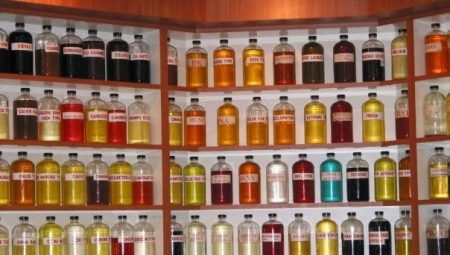
Perfume oil was invented a long time ago. From the first days of its existence, it has become an integral part of the dress of kings and their closest loyal subjects. Having briefly conceded the right of primacy to alcohol-based perfumes, perfume oil returned to the market, immediately taking a leading position.
Advantages and disadvantages
The advantages and disadvantages of perfume oil can be talked about for hours. This product is appreciated for its many qualities.
- Possesses an amazing, "clean" aroma. And all because there is no alcohol in perfume oil, which, to varying degrees, brings its own note to the perfume bouquet. It is impossible to remove it.
- Hypoallergenic. High quality perfume oils do not cause allergic reactions. They suit everyone. And this moment is also a merit of its non-alcoholic content.
- It stays on the skin longer than alcoholic perfumes. Ethyl alcohol, which is used in the production of aromatic waters, quickly evaporates from the hair and skin, clothing. This is not the case with perfume oils. He is persistent, hardy, lasts at least 24 hours.
- Does not dry the skin. And this feature is again due to the complete absence of alcoholic impurities.
- Economical. A small bottle lasts much longer than a similar volume of eau de toilette. Perfume oils are usually sold in containers (with a roll-on applicator) with a volume of 3–12 ml. To get an unobtrusive scent, it is enough to anoint the skin with a product once. Thus, a bottle with a maximum capacity of 12 ml should last 12 months of use, even if used daily. In this case, the aroma disappears only after a day, which can also be attributed to the obvious advantages.
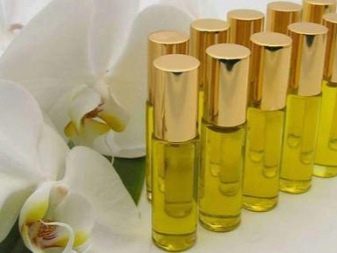
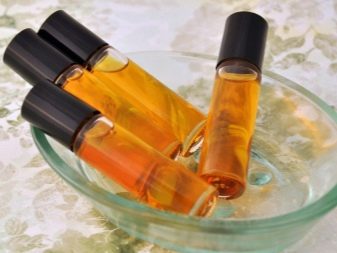
Despite the rather long list of advantages, perfume oils also have disadvantages. Among them are the following.
- Fast spoilage. Due to the fact that the oil is constantly in contact with the human epithelium, it can quickly deteriorate, especially if its owner does not have a love for personal hygiene.
- Unpleasant oily / sticky feeling on the skin.
- Visible stains on light colored clothing.
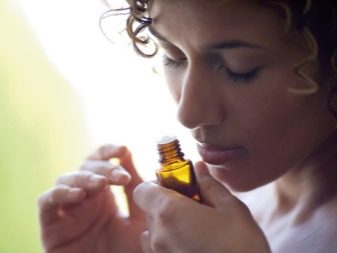
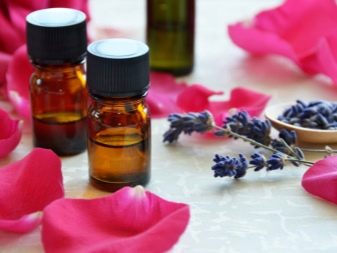
Application of oils
Over the years of its long existence, perfume oil has found a lot of applications.
- Aromatherapy. Certain oils are added to aroma lamps to achieve a positive effect of the substance on the human body (in combination with the main method of treating the disease).
- Perfume oils are used as a base for air fresheners.
- They are used in the production of handmade cosmetics. For example, these components act as a perfume in shampoo, soap, homemade cream. By combining the aromas of perfume oils, you can create a personal perfume.
- A valuable household helper. If you treat the surface of a small piece of paper with a small amount of your favorite perfume oil, and hide this piece in a closet with clothes and bedding, the entire contents of the closet will absorb the aroma and exude a pleasant fragrance. You can make scented candles, put a small amount on a gift, so that the recipient of the presentation will always remember the giver.
- Oily aromatherapy bases can be added to beauty products without a pronounced odor, during water procedures in the bath.
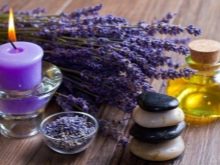
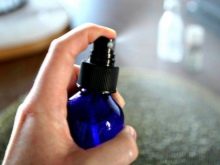

How to use
Modern perfume oils are used in various industries. They are used to create eau de toilette and cosmetic products, as well as self-contained perfumes. These products have an army of millions of satisfied customers who love the endurance and richness of the amazing product.
Perfume oil differs from perfumes by the instant opening of the aroma. But in order for the incense to last as long as possible, you need to follow the simple rules for using the product.
- Perfumed oil can only be applied to clean, washed skin. Ideally, immediately after a shower. Otherwise, body odors and oils will mix, and no one can predict what the end result of such a union will be.
- It is important to understand on which areas of the body it is better to apply oily perfume. Only on the skin! After all, applying such funds to clothes is a big mistake. Perfume oils are applied where the pulse can be felt: wrists, elbow and knee bends, neck. You can also coat the décolleté area with oil.
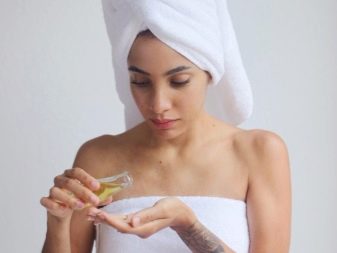
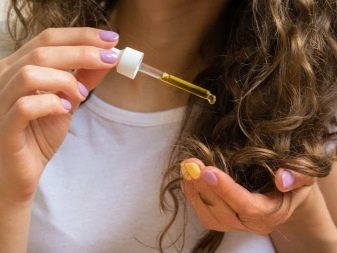
It is worth remembering that the aroma is felt stronger at the moment of active body movements. If a person is in a state of calmness, then the aroma dies down, but does not disappear for good.
It should be borne in mind that Egyptian perfumes act differently on different types of skin. On oily skin, the fragrance will be felt more and longer, and on dry skin - less time and not so much.
Using perfume, you cannot perform the following actions:
- rub them and rub - due to such manipulations, the aromatic composition of the product is destroyed;
- apply to clothing (especially synthetic);
- store in a refrigerator and in the light, in a humid environment (shower, bathroom);
- applying too much product - an excessive amount of oily perfume will turn the luxurious scent into a dense, cutting the smell of the sillage.
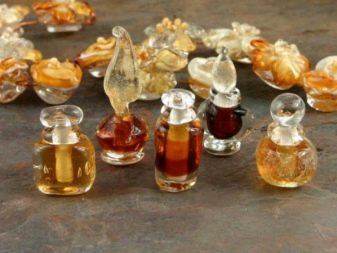
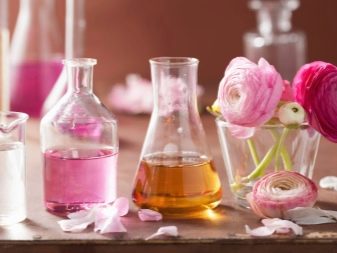
How to choose
Choosing the right perfume oil is not as easy as it might seem at first glance. Marketers skillfully advertise different brands, pushing people to make impulsive, not always logical decisions. But every woman should be able to choose a fragrance that will suit her, her lifestyle, character.
It is necessary to choose a persistent, but not harsh aroma, pleasant, unobtrusive, which will not overload the sense of smell of others.
The composition of high-quality perfume oils contains only natural ingredients. The base is played by a neutral oil (usually jojoba), into which various aromatic oils are added, thereby creating the desired bouquet. The modern assortment of essential oils is striking in its variety, but the most favorite, as at the beginning of the journey of a long existence, remain the following: rose and patchouli, lotus and sandalwood, amber, lavender and others.
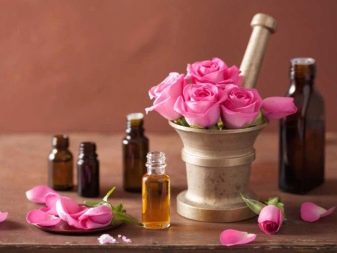
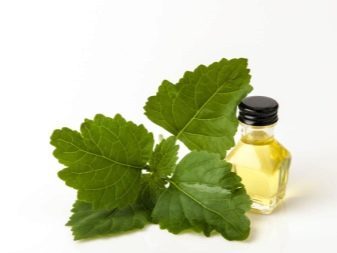
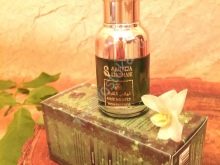
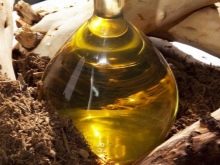
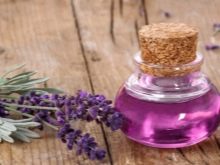
The non-plant material on this long list is ambergris, a substance that is secreted by the digestive tract of male sperm whales. The cost of such a component is extremely high - the price for 1 kg of ambergris sometimes reaches tens of thousands of dollars. This factor is explained by the fact that ambergris is the final product obtained as a result of a long transformation of whale droppings in the depths of the ocean. This path is counted in tens, hundreds of years.
Interacting with salt water and the scorching sun, ambergris changes its smell and color. It becomes not a stinking waste product of an oceanic creature, but a consistency with a noble tobacco aroma and marine notes.
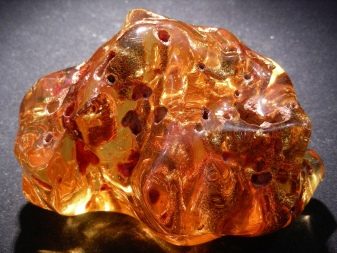
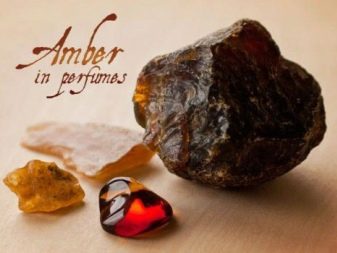
You shouldn't even try to find oil perfumes with "ambergris incense", there are none and never will be. And it's not about the price. This substance is used to fix the scent so that it becomes warmer and more delicate.
When buying a fragrant product, you need to know about its main suppliers. These are Egypt, UAE, France. A distinctive feature of Arab perfumes is their bottle. Sometimes a container is a whole work of art.
Egyptian perfume oil is considered to be of the highest quality. In the country of the Cheops pyramid, such perfumes can be bought right at the place of their manufacture, pouring out any amount of a deliciously smelling substance.
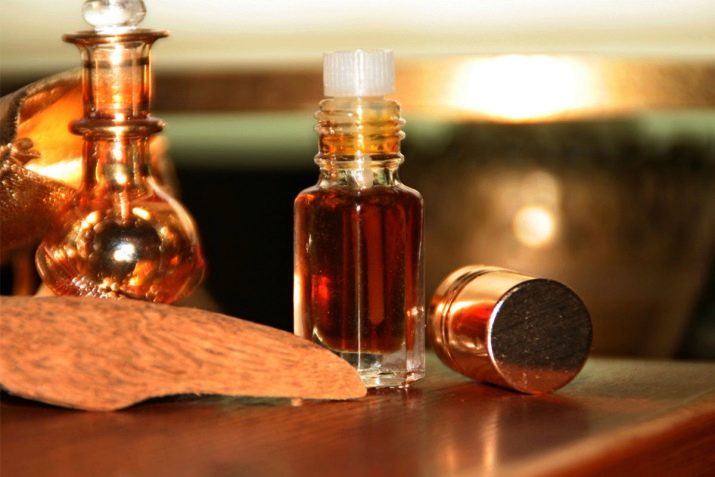
The difference between perfume oil and essential oil can be found in the video below.








